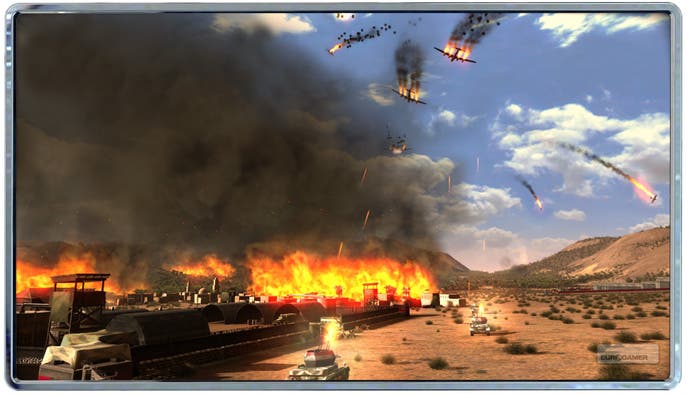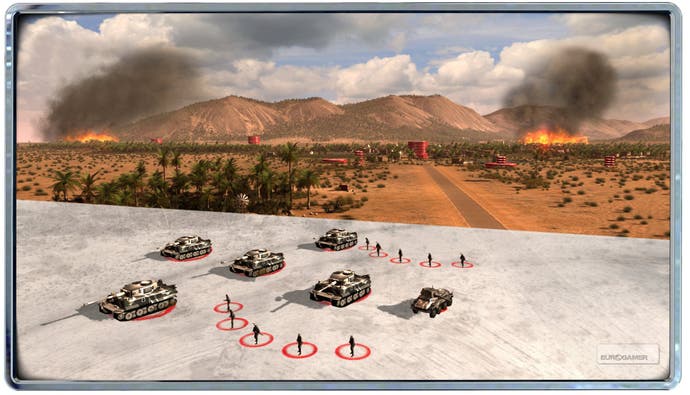R.U.S.E.
Deceptive.
Let's get down to it then: it's a real-time strategy game which, while it may be leading on PC, is due out at the same time on PS3 and Xbox 360. And when it comes to real-time strategy on consoles, all anyone ever wants to debate is compromises and dumbing down. Want to know why RTS games usually don't work on consoles? The fact we operate from the assumption that they won't work probably has something to do with it.
What's more, Eugen Systems' RUSE is doubly damned, because it's also set in World War II. So if we get bored patronising the console controls in previews, we can always move on to the line about how there's plenty of World War II to go around, and pretend Relic hasn't beaten everyone to the critical Berlin with Company of Heroes.
RUSE project coordinator Mathieu Girard, however, seems quite relaxed on both fronts. Controls? Well, he says, RUSE doesn't have the same problems as other games, for several reasons. It excises a lot of micromanagement, for one. You don't have to tell your tanks to run away when they're being shot, or that they should engage when the enemy's nearly within range; they know what they're doing. And thanks to the impressive Iriszoom engine, you don't need a mini-map, because there are three main zoom levels, which you can move quickly between with the right stick (mousewheel on PC).

And World War II? We need World War II, says Girard. "It's the last historical war on a world scale with all the units we know nowadays," he notes. "When you do a modern war game, you have to understand about electronics, radar jamming and stuff like that, which is a bit complex." The point being that even a console dullard can tell which end of a tank does what, and that flamethrower attacks probably don't work out well for artillery unit hiding in the forest.
Still, simplicity and familiarity aren't the typical answers you get when someone's asked to justify their game design decisions. In RUSE's case though, it seems to make sense: you need to be at ease, because battles are won or lost not just on the strength of your reflexes and unit selection, but perhaps even primarily because of the tricks you use to deceive the opposition, the eponymous ruses.

The idea with these, as you may know, is to deploy them to give yourself an unfair advantage, albeit temporarily. You can send a decoy army down one flank - in reality it's a couple of guys and some cardboard cut-out tanks - and as the enemy rushes to defend you can drive your main force right into their base from the opposite direction. Or you can use a decryption plan ruse to observe enemy movements within a certain sector. Spy plane identifies units and bases within a set area, while the camouflage ruse shields them from sight, and radio silence allows you to move around without being noticed. Coupled with Eugen's clever use of fog-of-war - showing you enemy positions but only identifying the specific units when you're within line-of-sight - it makes for a broad range of tactical possibilities.


